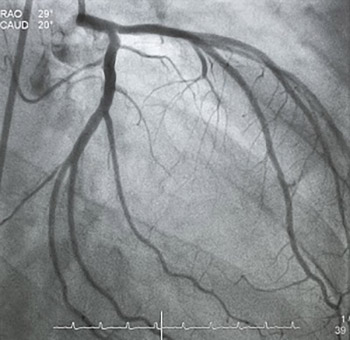Transit Time Flowmetry in Coronary Surgery-An Important Tool in Graft Verification
DOI:
https://doi.org/10.17305/bjbms.2007.3059Keywords:
Coronary artery bypass grafting, Transit time flow measurementAbstract
The aim of this study was to analyze the Transit time flow measurement (TTFM) experience in the first 1000 CABG operations. First 1000 patients had coronary artery bypass grafting (CABG) performed in Cardiovascular Clinic, University Clinical Centre Tuzla, Bosnia and Herzegovina, between September, 1998 and September, 2003. CABG without use of cardio-pulmonary bypass (CPB)-(OPCAB) was used as the preferential surgical method both because this method is reported to have equal or better results than CABG with use of CPB (ONCAB), and because of the significant cost savings realized. TTFM was routinely used in all grafts as a quality assurance measure. Criteria for a poor functioning graft were: low mean flow (MF), pul-satility index (PI) above 5 and a poor diastolic flow pattern. When no reversible cause of poor TTFM results were identified the graft was revised. A total of 1394 grafts in OPCAB group and 1478 in ONCAB group were performed. A total of 38 grafts (2,72%) in 37 patients (7,07%) were revised in OPCAB group, and 26 grafts (1,75%) in 26 patients (5,45%) in ONCAB group. 1 patient in OPCAB group needed 2 graft revisions. Graft revisions were more common in OPCAB, but with no significant difference (p=0,1035). The most frequently revised graft was LAD graft in both groups. Although the percentage of grafts revised are relatively low, it is still very important to record TTFM. More than 5% of patients in both groups needed graft revision. Although TTFM does not guarantee that grafts will stay open for a prolonged period of time we certainly believe that grafts that are occluded at the time of surgery will continue to stay occluded. TTFM is especially critical in OPCAB surgery where the technical challenge of grafting is higher then in ONCAB.
Citations
Downloads

Published
Issue
Section
Categories
How to Cite
Accepted 2018-01-24
Published 2007-08-20









